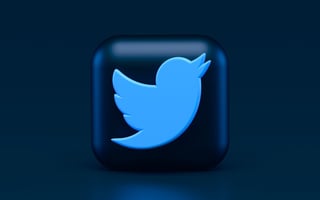We love receiving questions from our clients and media training blog readers about communication...
A regular theme in this media training blog is the importance of interview preparation.
And we make no apologies for that because it is the cornerstone of a good outcome.
No matter how experienced a spokesperson is, no-one can wing a media interview.
Whether it is a broadcast or print interview, lack of preparation will ensure that the spokesperson fails to get messages across and doesn't seize the opportunity that an interview presents.
But what exactly constitutes ‘good preparation’?
Here’s our guide to what you need to cover.
Anticipate the questions
Media preparation needs to focus on anticipating what you or your spokesperson could get asked in the interview.
But this needs to go beyond considering the negative questions you may be asked about the interview subject, and also include the what wider issues are currently moving which could be brought into the conversation. For example, you may notice that Brexit is brought into a lot of interviews at the current time.
Once you have a good idea of the questions which are likely to come up, think about how you would answer them.
Messaging
Some media training courses will tell spokespeople to make a list of the messages they want to get across.
But here’s the thing, the audience is unlikely to remember more than one major point a spokesperson makes in an interview.
So preparation, in terms of messaging, needs to focus on honing that one message in to something which is memorable and truly resonates with the audience.
One of the best ways to achieve this is for spokespeople to put the message into their own words – the language they are used to using.
Not only does this increase a spokesperson's confidence (it’s always harder to speak passionately about something using somebody else’s words), but it also helps bring messages to life.
Examples
“Messages without examples are just rhetoric.” That is something I heard one of our current working journalist tutors say during one of our media training courses, and it really stuck in my mind.
Knowing what examples to use to support your messages is a crucial part of preparing for an interview.
To be effective, examples need to be relatable and human.
The most powerful examples are those which are personal to the spokesperson and that connect with the audience and take them on a journey.
Personal stories and anecdotes help make an interview relevant to the audience, provide a human side to the organisation and help spokespeople sound more natural.
Statistics
Statistics can be a really powerful tool in media interviews and can support messages if they are used well.
So they should form part of any effective interview preparation. The key is to present them in a way the audience can visualise and remember.
To give you an example, as I write this, there is a story about plans to build a ‘mega’ retail complex in Dubai. It will reportedly be 2.6 million square metres, which sounds impressive, but is hard to visualise.
How about when I tell you that is the size of 100 football pitches? Suddenly you can imagine the huge scale of that development.
Training
“Remember your training and you’ll make it out alive.”
So said Lieutenant Willy in the (classic) Starship Troopers film.
It’s not going to be that bad, but good quality media training equips spokespeople with the skills to survive even the most heated and hostile interviews.
Tools like bridging and signposting give spokespeople the ability to control media interviews, and being put through your paces by current working journalist tutors prepares them to execute strong interviews and deliver memorable sound bites.
Review
An often overlooked part of preparing a spokesperson for media exposure is to look back on any previous interviews they have done.
There is real benefit in identifying what went well and what could have gone better or been done differently, as long as there is a relationship where honest feedback can be given.
This is why we record all our interviews during media training for both review during the course and so that we can provide them to delegates to look back on afterwards..
If you have a full day of media interviews, try to factor in a short period of time between each one for a brief review so that any issues can be ironed out ahead of the next one.
Rehearse
A pre-interview rehearsal can be a great way to prepare for an interview.
Think about the questions a journalist is likely to ask and run through them with a colleague. Ideally this should be someone unafraid to give helpful criticism without destroying your confidence (We can help if you don’t have such a colleague).
When you review it, think about whether you delivered the key message and took control of the interview or merely answered the questions asked.
Alternatively, a spokesperson can put questions to themselves and record their responses on a smartphone.
Warm up
Warming up is not just important before embarking on physical exercise – it is also important to warm up the vocal chords ahead of an interview.
But don’t read your notes or your press release out loud. Instead, read aloud a children’s book and use it to vary your tone and practice using pauses for emphasis.
And while we are on the subject of vocal chords and throats, avoid consuming chocolate or milk immediately before an interview as dairy products can cause a build-up of mucus in the throat. Sugary soft drinks are said to cause a similar problem.
Know the basics
A key part of any interview preparation is to ensure that the spokesperson has all the basic information they need.
Areas which must be covered here include knowing the exact format of the interview. For example, a down-the-line interview is very different to being interviewed in a studio or at your place of work and a telephone print interview has many subtle differences compared to doing one face-to-face.
A spokesperson also needs to know what else will be included in the news package. For example, will other people be interviewed?
It is also important that spokespeople have information about the journalist they will be speaking to and the organisation they work for. An interview with a Daily Mail reporter, for example, could explore some very different angles to one with the Guardian. If your spokesperson were to appear on the Talk Radio Breakfast show, would they know they would be likely to be interviewed by the pro-Brexit journalist Julia Hartley-Brewer, which could make it a very different experience from an interview with a regional BBC radio station?
Don’t over prepare
As bizarre as it may sound, coming from a blog focusing on interview preparation, there is a risk of over preparing for interviews.
Briefing documents have an important role to play, but pages and pages of information on messaging and lines to take are going to be hard for any spokesperson to really take on board and absorb.
Over-preparation can also lead to spokespeople sounding rehearsed and unnatural in the media interview.
And the final danger here is that the spokesperson could build the interview up so much, that when they come to do it, the nerves kick in, causing them to feel muddled and unable to recall key information when the pressure is on.
Media First are media and communications training specialists with over 30 years of experience. We have a team of trainers, each with decades of experience working as journalists, presenters, communications coaches and media trainers.
Click here to find out more about our bespoke journalist-led media training courses.




